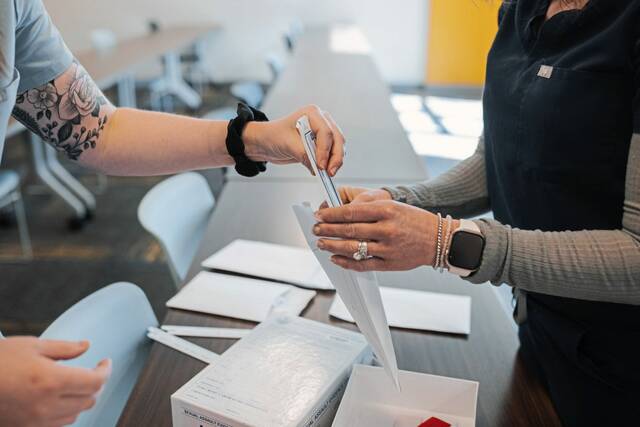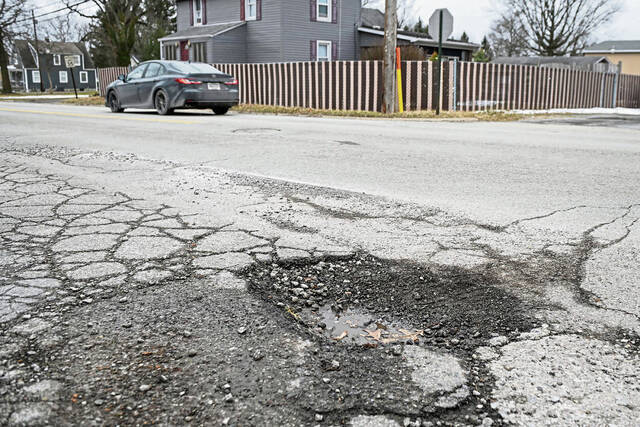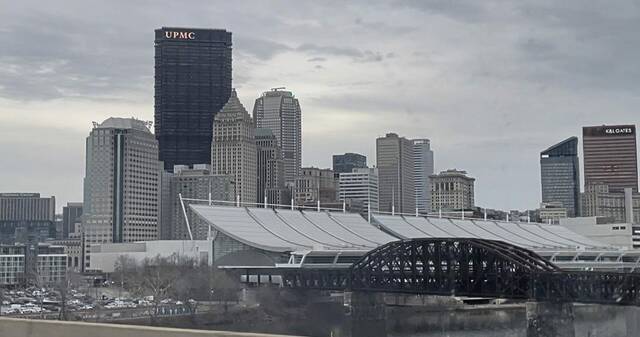A week after Gov. Tom Wolf renewed his opioid disaster declaration for the seventh time since 2018, Secretary of Health Rachel Levine spoke about the successes against the ongoing crisis and a program that will assist dependent patients cut off by their doctors.
Speaking Monday at “Opioids: The Fight Continues,” an educational conference for UPMC employees, Levine detailed the collaborative effort among local, state and federal agencies to combat the crisis.
The latest tool, a patient advocacy program, will be up and running within the next four months, Levine said. The program will help those dependent on prescription opioids who are either cut off by their prescribers or whose prescribers are shut down by law enforcement.
She gave the example of a prescriber running a pill mill who is arrested.
“That’s going to leave hundreds if not thousands of patients stranded without their medicine,” she said. “If they are stranded without the medicine they’d been receiving from that physician, they’re going to go to the black market.”
And the black market, Levine said, is full of opioids much stronger than what they’re used to, including what she said are pills pressed from fentanyl made to look like OxyContin.
She said it’s important for everyone, from law enforcement to medical professionals, to remember that those individuals have become dependent on their prescription drugs.
“You can’t cut off patients,” she said. “If you have someone that’s been carried for three or five or 10 years on opioids, you cannot cut that person off — that patient is physiologically dependent on opioids.”
Those patients will be directed to organizations and resources that can help. Levine said that could be working with them to wean them from the prescription opioids or lower them to a safer dose.
It’s part of a refrain in Levine’s talks: Addiction is a disease.
“It is a medical condition,” she said. “It is a disease. It is not a moral failing.”
The UPMC event coincided with the launch of the state’s initiative “Stop Overdoses in PA: Get Help Now.” The weeklong program, which will include two days in which any resident can go to a health center or pharmacy and get Naloxone, is in the same stigma-fighting vein.
“I reject completely that someone suffering from the disease of addiction does not deserve to have their life saved any time they might overdose,” Levine said. “If there’s life, there is hope. We have certainly learned it is impossible for someone to get into treatment and get into recovery if they are dead.”
Dr. Michael Lynch, the medical director at the Pittsburgh Poison Center and UPMC Health Plan’s substance use disorder services, said the speaker series helped drive home to staff the widespread impact of the epidemic.
“It cuts across all cultural and socioeconomic divides,” he said. “What they have in common is that they are all human beings with thoughts and feelings and family members who care and love them. We all need to take a step back and see the person who has the disease … to address the stigma attached to it.”
For more information on National Recovery Month, visit pro-a.org/calendar and for more information on Get Help Now Week, visit health.pa.gov








